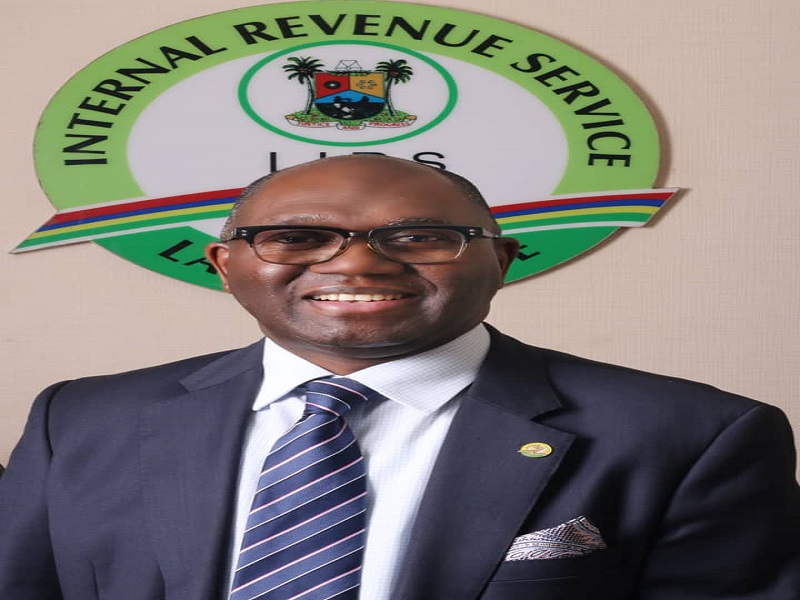News
Nigeria Lags in DHL Global Connectedness Index

DHL released the fifth edition of the DHL Global Connectedness Index (GCI) this week – a detailed analysis of globalization, measured by international flows of trade, capital, information and people.
Mauritius emerges sub-Saharan Africa’s most connected country; Mozambique named as one of the countries where international flows most exceed expectations.
The new GCI report represents the first comprehensive assessment of developments in globalization across 169 countries and territories since the Brexit referendum in the United Kingdom and the 2016 presidential election in the United States.
In Sub Saharan Africa, the highest ranking country was Mauritius, which featured in 40th position, while South Africa was named the highest ranking country on the African continent itself, with an overall ranking of 56th place.
“As the world continues to globalize, there are still many opportunities for intercontinental & intra regional trade, particularly for emerging economies in Sub Saharan Africa,” says Hennie Heymans, CEO of DHL Express Sub Saharan Africa. “Globalization is a key driver for growth and fiscal security, which is evident in countries that have embraced it. We are confident about continued further growth in the region with new trade agreements coming into effect, to support regional collaboration.”
“Surprisingly, even after globalization’s recent gains, the world is still less connected than most people think it is,” commented GCI co-author Steven A. Altman, Senior Research Scholar at the NYU Stern School of Business and Executive Director of NYU Stern’s Center for the Globalization of Education and Management.
“This is important because, when people overestimate international flows, they tend to worry more about them. The facts in our report can help calm such fears and focus attention on real solutions to societal concerns about globalization.”
At the global level, the GCI shows, for example, that just about 20% of economic output around the world is exported, roughly 7% of phone call minutes (including calls over the internet) are international, and only 3% of people live outside the countries where they were born. The report also debunks the belief that distance is becoming irrelevant. Most countries are much more connected to their neighbors than to distant nations.
The GCI continues to reveal vast differences between levels of globalization in advanced versus emerging economies. Emerging economies trade almost as intensively as advanced economies, but advanced economies are more than three times as deeply integrated into international capital flows, five times for people flows, and almost nine times with respect to information flows.
Additionally, while leaders from large emerging markets have become major supporters of globalization on the world stage, emerging economies’ progress catching up in terms of global connectedness has stalled.
Mozambique beats expectations
Mozambique was named as one of the five countries where international flows exceed expectations the most. This is positive news for the region, because deeper global connectedness can help accelerate countries’ economic growth.
One cause for optimism regarding further growth potential for Sub Saharan Africa, is the signing of the African Continental Free Trade Agreement (AfCFTA), signed by 49 countries in March 2018. According to a study by the UN Economic Commission for Africa, full implementation of the AfCFTA could double intra-African trade and boost the whole continent’s global connectedness.
In spite of growing anti-globalization tensions in many countries, connectedness reached an all-time high in 2017, as the flows of trade, capital, information and people across national borders all intensified significantly for the first time since 2007. Strong economic growth boosted international flows while key policy changes such as US tariff increases had not yet been implemented.
The 2018 index measures the current state of globalization, as well as individual rankings for each country, based on the depth (intensity of international flows) and breadth (geographical distribution of flows) of countries’ international connections.
The world’s top five most globally connected countries in 2017 were the Netherlands, Singapore, Switzerland, Belgium and the United Arab Emirates. Eight of the top 10 most connected countries are located in Europe, helping make it the world’s most connected region, in particular for trade and people flows.
North America, the leader in capital and information flows, ranked second among world regions, followed by the Middle East and North Africa in third place.
News
Firms Commit to Boost African Robotics Market

AfricAI and Micropolis Robotics have signed a multi-year exclusive distribution and deployment agreement, which marks one of the continent’s most significant robotics market entries.

Micropolis AI Robotics is a United Arab Emirates-based robotics manufacturer operating in autonomous systems, while AfricAI is a company building practical, revenue-driven artificial intelligence (AI) systems for African businesses, governments, and global partners operating in emerging markets.
According to the agreement, Micropolis Robotics named AfricAI as its exclusive continental partner, prohibiting direct sales, alternative distributors, and third-party agents from operating in the territory.
The partnership establishes AfricAI as the primary execution, localisation, and go-to-market platform for intelligent robotics in Africa’s industrial, security, logistics, and infrastructure sectors.
AfricAI said this exclusive mandate positions the company as the gateway for advanced autonomous systems entering African markets, ensuring regulatory compliance, local capacity building, and sovereign control over deployment frameworks.
The partnership, according to the two parties, moves beyond software- based AI into the realm of physical AI — intelligent machines capable of operating in complex, real-world African environments.
“This is not a collaboration, it is a market-shaping mandate,” said Fareed Aljawhari, CEO of Micropolis Robotics. “AfricAI now represents the exclusive gateway through which Micropolis technologies enter Africa. Their sovereign AI vision, operational reach, and regulatory fluency make them the only partner capable of executing at a continental scale.
Furthermore, the agreement enables AfricAI to integrate Micropolis’ autonomous robotics systems with AfricAI’s sovereign AI stack, resulting in AI-powered security and surveillance platforms, robotics-enabled logistics and port operations, industrial automation, smart infrastructure, and municipal robotics tailored to African operating conditions.
Initial deployments will commence in security, smart infrastructure, and logistics, with phased expansion across multiple African states as part of AfricAI’s broader continental AI, data, and intelligent infrastructure strategy.
The agreement also includes long-term performance-linked expansion rights, automatic renewals, and a defined localisation framework to support robotics deployment, workforce training, and skills transfer across Africa.
Prince Malik Ado-Ibrahim, executive chairman of AfricAI, said: “Africa does not need imported automation — it needs sovereign, context-aware intelligent systems. This exclusive mandate allows AfricAI to industrialise robotics deployment at scale while retaining control, compliance, and value creation on the continent.”
News
Subair: LIRS Won’t Raid Accounts – Unless You’ve Lost Every Court Battle

Lagos State Internal Revenue Service Executive Chairman Ayodele Subair Tuesday demolished online panic over alleged bank account raids, insisting the agency’s “Power of Substitution” targets only hardcore tax dodgers who have exhausted every appeal from tribunals to the Supreme Court over half a decade of disputes.

Ayodele Subair
Subair, speaking on Arise TV, shredded viral fears that LIRS would swoop on residents’ savings without warning, clarifying the mechanism under Section 60 of the Nigeria Tax Administration Act 2025 kicks in solely after assessments spark objections, reconciliations, demand notices, and a gruelling courtroom odyssey through High Court, Court of Appeal, and apex rulings.
The LIRS weekend notice had ignited fury by announcing enforcement via third parties – banks, employers, tenants, debtors – to claw back unpaid Personal Income Tax, Capital Gains Tax, Stamp Duties, and Withholding Tax from chronic defaulters holding funds or owing money to them, whether due now or accruing later.
Subair likened the process to a “long timeframe, not less than five years,” where recalcitrant bigwigs who stonewall every step become fair game, with LIRS directing agents like customers or partners to divert payments straight to the taxman in lawful settlement.
Far from arbitrary grabs, the chairman stressed it’s a final resort for “entirely recalcitrant” holdouts who ignore Notice of Refusal to Amend (NORA) and every olive branch, ensuring Lagos coffers snag rightful revenue fuelling the state’s bulging budget without shotgun raids on compliant payers.
As social media buzzes with defiance – “They can’t touch my account!” – Subair’s blueprint spotlights Nigeria’s tax evasion scourge starving subnationals of trillions yearly, with Lagos alone chasing billions in arrears amid federal revenue wars and economic headwinds squeezing the commercial capital’s 25 million souls.
Industry voices nod to the legality but plead for digital dashboards tracking disputes transparently, warning overzealous recovery could spook investors in Africa’s fintech and startup mecca already reeling from naira nosedives and grid glitches.
With LIRS poised to unleash the hammer on vetted violators, Subair’s clarion call aims to separate myth from muscle, bolstering Lagos’ IGR juggernaut that hit N815 billion last year while daring defaulters to test the full judicial gauntlet before crying foul.
News
NIGCOMSAT Adopts Government’s Performance System

Nigerian Communications Satellite (NIGCOMSAT) Ltd, in a strategic move to modernise its operations and foster a results-oriented workforce, has officially adopted the Federal Government’s Performance Management System (PMS).

The initiative, aimed at driving efficiency and institutionalising accountability, was marked by an intensive staff training program designed to align the agency’s operations with national performance goals and the Presidency’s vision for a digital-first public sector.
According to a statement from Stephen Kwande, the Agency’s acting head of Corporate Affairs, “the transition to PMS is a departure from historical evaluation methods. The new system is designed to provide real-time performance tracking and instill a stronger work ethic across all directorates”.
Welcoming participants, Mrs. Jane Nkechi Egerton-Idehen, managing director/CEO of NIGCOMSAT, represented by Abiodun Attah, executive diirector, Technical Services, described the adoption as “long overdue.”
She emphasised that the system is critical for ensuring that NIGCOMSAT contributes effectively to Nigeria’s broader digital economy targets.
In her opening remarks, Mrs. Chinwe Udogu, general manager, Human Resources Management, expressed NIGCOMSAT’s enthusiasm for the program, urging staff to dedicate themselves fully to the three-day training.
She noted that the exercise was pivotal in repositioning the company to achieve its highest aspirations.
The training consultant, Mrs. Njoku Chioma, said the program is expected to drive culture change, automate work processes, and strengthen institutional performance.
The three-day training, jointly organised by the Office of the Head of Service of the Federation and NIGCOMSAT Management, covers key themes including:
• Overview of the FCSSI25 as an institutional performance-driven Federal Civil/Public Service
• Service culture and workplace attitude in the Nigerian public sector
• Implementation of the Performance Management System in NIGCOMSAT
• Application of Artificial Intelligence tools to enhance performance in the Nigerian public sector
The move comes at a time when NIGCOMSAT is expanding its footprint, with recent initiatives like the 2026 SpaceTech Accelerator Programme and partnerships for grassroots digital skills training.
By strengthening its internal management framework, the agency aims to ensure that its technical advancements in satellite technology are matched by an equally efficient administrative engine.

 E-Financial3 days ago
E-Financial3 days agoCBN Upgrades Licences of Opay, Moniepoint, Kuda, Palmpay, Paga to National Status
- E-Financial3 days ago
Nigeria’s 9 Top FinTech Firms Valued at $10.6Bn in January 2026

 News3 days ago
News3 days agoTech Executives Double Down on AI, Talent and Adaptive Strategies to Lead in the Intelligence Age

 E-Financial3 days ago
E-Financial3 days agoNIBBS to Boost Financial Inclusion with Offline Payment Solutions

 News3 days ago
News3 days agoDHQ Indicts Brigadier General Abubakar Sadiq, 15 Others in Alleged Coup Plot againt Tinubu

 E-Financial2 days ago
E-Financial2 days agoPayPal Goes Live in Nigeria through Paga

 E-Business3 days ago
E-Business3 days agoFirm Identifies AI as Common Denominator in Entertainment Industry’s 2026 Security Threats

 Broadcasting2 days ago
Broadcasting2 days agoNITDA, NBC Explore Strategic Collaboration on Digital Transformation, Media Regulation



























